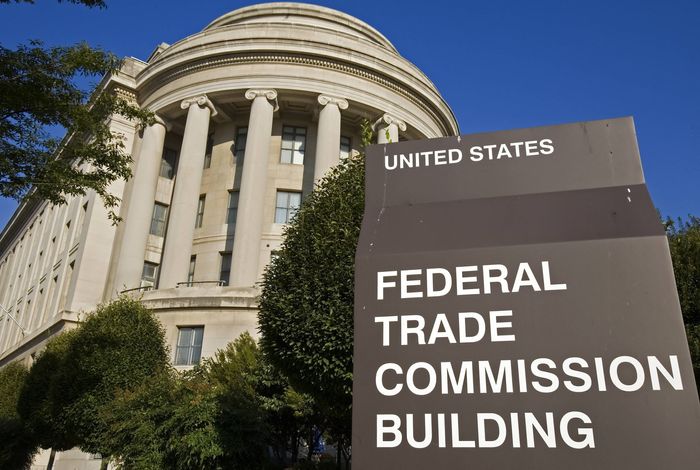Throughout my career, I have witnessed the introduction of the CAN-SPAM Act of 2003, the Telemarketing Sales Rule (TSR), the California Consumer Privacy Act (CCPA), the General Data Protection Regulation (GDPR) in the European Union along with countless other regulations and laws regarding marketing to consumers. As AI continues to reshape industries like telemarketing and advertising, the regulatory environment is evolving rapidly trying to keep up.
At Taalk, we’re committed to staying ahead of these changes, ensuring we not only comply but lead in ethical AI practices. Recent developments from the Federal Trade Commission (FTC), Federal Communications Commission (FCC), and state legislation such as Colorado's SB24-205 underscore the importance of compliance in this dynamic environment. In this blog post, we will explore these regulatory changes and their implications for AI-driven telemarketing and more importantly, consumer protection.
FTC’s Updated Approach to AI in Telemarketing
One of the key focus areas for the FTC is a potential ruling that would require companies to disclose when a call is being made by an AI. The FTC is currently seeking comments on this ruling, and further information can be found here: (https://docs.fcc.gov/public/attachments/DOC-404567A1.pdf). Interestingly, about 50% of our clients already incorporate this disclosure into their call scripts, with phrases like "Hi, this is Paul, your AI insurance specialist here to help you get the best rate..." This transparency not only aligns with regulatory expectations but has also been shown to improve campaign performance in certain cases, suggesting that consumers appreciate honesty and clarity.
We anticipate more regulations as AI continues to integrate into marketing, and we’re ready. There’s a significant opportunity for companies that prioritize compliance and ethical AI usage.
FCC's New Classification: AI-Driven Calls and Robocall Regulations
The FCC recently announced that AI-driven calls are now classified under robocall regulations. Here’s what that means:
1. Explicit Consent is Required: Before making AI-driven calls, you must obtain clear permission from the recipient. This should be nothing new for ANY company making outbound phone calls…CONSENT IS NON NEGOTIABLE.
2. No Unauthorized Voice Cloning: The FCC has banned using AI for voice cloning without consent, aiming to prevent fraudulent activities.
While some media outlets may sensationalize this as a ban on AI calling, the reality is more nuanced. The FCC’s decision is about protecting consumers and we believe it was a necessary step in ensuring that AI technology is not used to circumvent or abuse the Telephone Consumer Protection Act (TCPA) rules. We’ve always ensured our platform adheres to these principles, so these changes align well with our existing practices.
Colorado’s SB24-205: Protecting Consumers in AI Interactions
Colorado recently passed SB24-205, a law focused on consumer protections in AI interactions. Starting February 1, 2026, both developers and deployers of high-risk AI systems must take steps to prevent algorithmic discrimination and other risks. Here are the essentials:
- For Developers: Transparency is key. You must disclose risks, provide documentation, and keep the public informed about how you manage potential issues.
- For Deployers: You’ll need a robust risk management plan, ensure your AI systems aren’t discriminatory, and offer consumers the ability to correct errors or appeal decisions made by AI.
This law also emphasizes the importance of making public statements about the AI systems in use and how you handle any associated risks.
Our Commitment to Compliance and Ethical AI Use
At Taalk, compliance has been a core value since day one. The recent FTC, FCC, and Colorado regulations align perfectly with how we operate:
- Outbound Calls: We’ve always required explicit consent before making a call, and we integrate the FTC’s Do Not Call (DNC) list along with the TCPA call rules into every campaign.
- Inbound Calls: These calls inherently imply consent through engagement, making them straightforward in terms of compliance.
- Voice Cloning: Unauthorized voice cloning has never been allowed on our platform, aligning with the FCC’s rules.
As regulations continue to evolve, we’re here to help our partners navigate these changes effectively. We take pride in educating our partners about new AI regulations, ensuring they are well-prepared to adapt to any changes in the legal landscape. AI is not going anywhere and the companies that learn to use it ethically and efficiently will experience explosive growth.
Disclaimer: We are not attorneys, and the information provided here is not legal advice. We strongly recommend consulting with your legal counsel to ensure full compliance with all aspects of your business. If you would like an introduction to law firms that specialize in AI and the FTC/TCPA topics we covered, please reach out and we are happy to make some introductions.
For any questions or additional support, don’t hesitate to reach out to your Taalk support team. We’re here to help you succeed, leveraging AI responsibly and within the bounds of the law.

